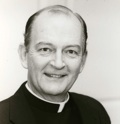Progressive Originalism
The March 14 edition of the Wall Street Journal carries an interesting story regarding efforts to use “progressive originalism” in upcoming precedent-potential cases. The Journal reports that the Center for Constitutional Accountability, a progressive public interest law firm run by Doug Kendall, and several liberal-leaning legal academics have undertaken a sustained effort to revive the Privileges or Immunities Clause of the 14th Amendment. The Journal reports:
So-called progressive originalism departs from the conservative strain by shifting focus from the 18th-century constitutional text to the three Reconstruction amendments ratified after the Civil War. . . . Viewed through the Reconstruction prism, the “Constitution turns out to be way more liberal than conservative,” says Yale law professor Akhil Reed Amar, a leading proponent of progressive originalism. . . . By applying methods blessed by conservatives to the neglected texts and forgotten framers of the Reconstruction amendments, liberals hope to deploy powerful new arguments to cement precedents under threat from the right and undergird the recognition of new rights.
The Journal’s report struck me as particularly interesting when juxtaposed alongside an article authored by Marquette alumnus Keith Alexander (BA ’98, MA ’00) and published recently in the Texas Review of Law and Politics. In developing an argument regarding the federal partial birth abortion ban, Alexander focuses on the original meaning of the 14th Amendment’s Equal Protection Clause:

